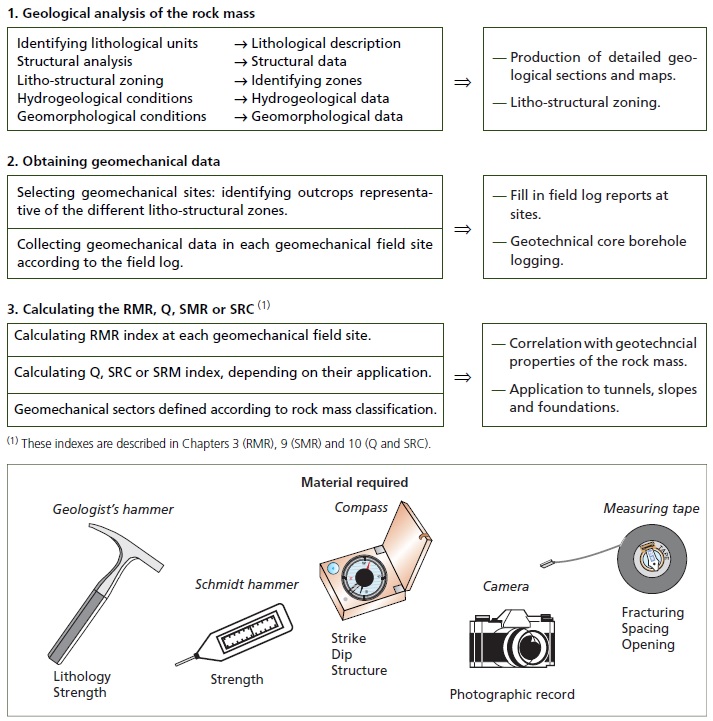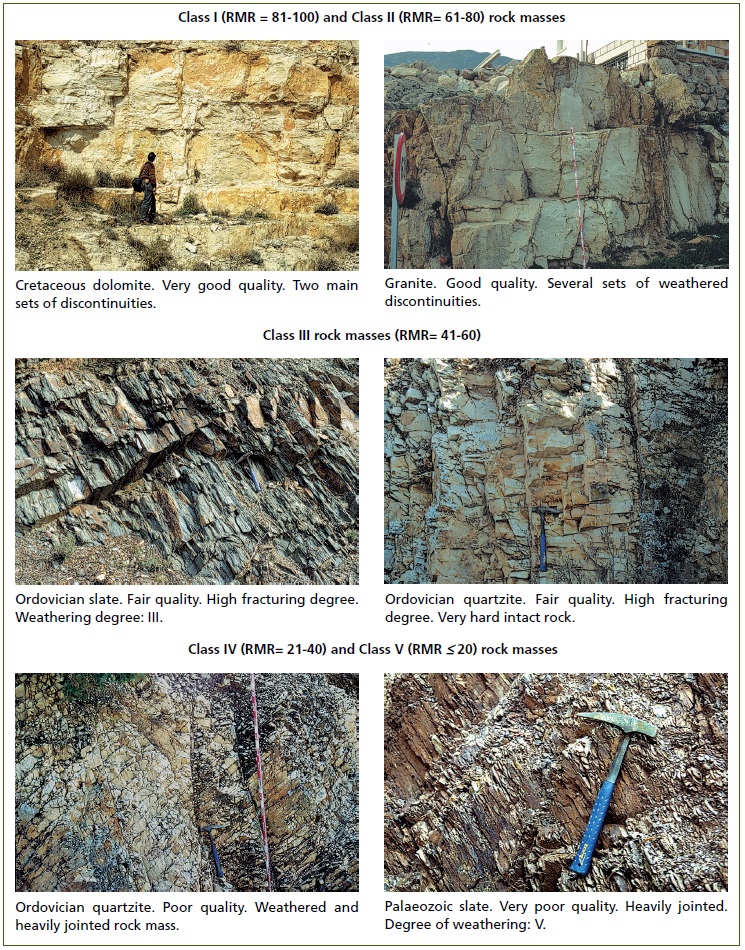Geomechanical classifications in practice
Geomechanical classifications are a procedure for characterizing rock masses from field and borehole data, and are applied mainly to tunnels, because of the difficulty of studying rock masses at depth.
But they are also applied to describe rock masses in general, and to provide a geotechnical rock mass classification. Calculating the RMR or Q indices allows an estimate of rock mass strength and deformability parameters, and of their expected behaviour when excavated.
To apply them, field observations and measurements must be made, which are the basis and the systematic practice of the classification, as indicated in Figure 1.

The rock mass classes obtained refer to conditions before excavation, and their description must specify if any adjustments have been applied, for discontinuity orientation or any other specific adjustments for tunnels. Other aspects to be highlighted are significant geological structures or areas, such as faults, folds or other tectonic structures, discordances, heavily weathered areas or areas with water infiltration.

The main advantage of geomechanical classifications is that they provide an easy and simple estimate of the mechanical parameters of the rock mass. However, their over-simplification must be taken into account when they are applied to weak, soft and weathered rock masses, for which in general they overestimate strength and mechanical properties, and do not consider certain important aspects such as rock mass deformability.
When applying these classifications, their limitations must be considered, and the results always interpreted carefully, based on a knowledge of the properties and geomechanical behaviour of the different types of rock mass.
Examples of classes of rock mass (Rock mass rating – RMR)
Figure shows examples of rock masses belonging to different classes according to RMR index.

Rock mass rating mobile application – download

